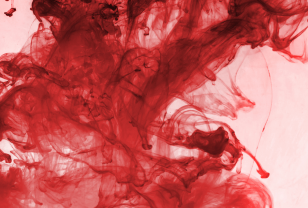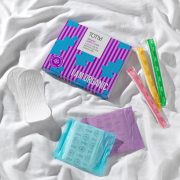We’ve paired up with Doctify to get Endometriosis management tips from registered Dietitian Katherine Kimber. We asked Katherine all about managing endometriosis symptoms through diet.
Here, Katherine talks us through which nutrients may help and which foods may increase inflammation:
Can diet help with managing Endometriosis?
“The role of diet in determining the establishment and progression of endometriosis has recently become a topic of interest. This is mostly due to the observation that some of the physiological processes associated with the disease, can be influenced by diet.
However, the research in this area is limited. Two large reviews (1,2) were conducted in 2013 to identify the role of diet on endometriosis. They found that coffee, trans fats (found in some processed foods like chips doughnuts, chocolates, cookies), red meat, ham, and saturated fat (animal fats) consumption may enhance pathological processes behind endometriosis. On the other hand, fish, Omega-3 fats, and vegetables may reduce the pathological processes associated with disease progression. There is currently no evidence to support the observations that gluten-free diets, specific vitamins or weight loss improve symptoms or delay disease progression of the disease.
It must be highlighted, however, that the quality of all research into diet and management of endometriosis is extremely mixed, poor quality and limited. The treatment of endometriosis needs to be considered holistically, along with individualised advice. What works for some, may not work for others. I coach clients with tailored nutrition advice for this reason. There is currently limited specific dietary advice that can be offered at present to delay progression, onset, or reduce symptoms of endometriosis. However, a good starting point would be to include regular balanced meals. It is good to have a variety of foods from each food group in adequate amounts. It also good to ensure you do not have too much salt, alcohol, caffeine, saturated and trans fats, which all contribute to a healthy balanced diet.”
To ease discomfort, do you recommend any nutrients that can benefit those with Endometriosis?
“Ensuring the diet contains one portion (140g) of oily fish per week would be a good place to start. This is due to the anti-inflammatory properties of fish oils. Good sources include; mackerel, trout, fresh crab, kippers, sprats, whitebait, pilchards, salmon, swordfish, fresh tuna, herring and sardines. This is also the recommendation for general good heart health.
Whilst Premenstrual Syndrome (PMS) and endometriosis are not the same thing, there is some evidence to show that adequate amounts of calcium and Vitamin D can help relieve pre-menstrual pain. It is important to ensure the diet, therefore, contains adequate calcium and vitamin D. Good sources of calcium also include substitutes such as soya milk, or yoghurt. The government also recommends a 10g Vitamin D supplementation for all those living in the UK from the months of September to April. This is because we generally do not consume enough Vitamin D and rely on the sunshine for this. Unfortunately, the UK sun is not strong enough to provide adequate Vitamin D in these months.
A diet rich in B Vitamins may also help reduce the incidence of PMS, however, not as supplement tablets. Therefore, ensure you are eating plenty of foods containing B vitamins. Foods rich in these include wholegrain cereals and beans.”
Are there any foods you would recommend avoiding that could worsen symptoms?
“Trans fats are thought to be involved in the inflammatory process and may represent important steps in favouring endometriosis mediated events, however, this aspect remains to be confirmed. There would certainly be no harm in reducing intakes of heavily processed foods that may contain added trans fats, such as cakes, biscuits, chocolates, cookies, doughnuts.
There would also be no harm in laying off too much coffee, aiming to have no more than 2-3 caffeinated drinks per day. This is a recommendation for general health, and as there is a potential link between caffeine and endometriosis progression, it may be a sensible suggestion. Some common drinks in which caffeine can be found include; coffee, English breakfast tea, green tea, energy drinks and cola.
There would also be no harm in keeping alcohol to the minimum and not going over 14 units during the course of the week. Alcohol can make symptoms of PMS worse, interfere with sleep, and also lower the bodies stores of several nutrients including B Vitamins. That’s less than 6 medium glasses of wine or 7 double gin & tonics in a week, with at least 3 alcohol-free days.”
To combat bloating or ‘Endo belly’, can you advise on any remedies?
“There are no specific remedies that we know can support with bloating or ‘endo belly’ however, a good place to start would be to focus on a happy and healthy gut. Some top tips include:
Chew your food:
Bloating can be caused by undigested food reaching the large intestine, and if the food is not digested properly further up the in the gut, they can quickly ferment and produce lots of gas and therefore discomfort. When food is chewed well, it is more easily digested. Aim for around 15 chews per mouthful.
Ensure good variety:
Eating a wide range of different coloured fruits and vegetables is important for a good diversity of friendly gut bacteria. I often set clients the challenges of trying 1-2 new fruit or vegetables in a week, picking something up from the supermarket that they wouldn’t usually go for.
Keep moving:
A minimum of 30 minutes 5 x per week is what I would usually recommend. Feeling a little warm and breathless counts, it doesn’t have to be anything too intense or even in a gym! This can help with good gut health too.
Get comfy:
Aim to wear loser and more comfortable clothes that aren’t going to press into your stomach and potentially interfere with digestion or press onto your lower abdomen.”
What about for severe pains, are there any nutritional remedies that can soothe cramps?
“So far, there is not enough evidence to suggest dietary intervention for managing severe pain with endometriosis. For some women, endometriosis can have a big impact on life. It would be important to seek individualised support from the GP if the pain became severe.”
Thanks to both Doctify and Katherine Kimber for writing this post for us. For personalised nutrition advice from Katherine, check out her website, Twitter, Instagram or Facebook. Have you taken away good tips from this article? Drop us a comment below or chat to us on socials!
References & other useful links:
- Parazzini, F., Viganò, P., Candiani, M., & Fedele, L. (2013). Diet and endometriosis risk: a literature review. Reproductive biomedicine online, 26(4), 323-336.
- Hansen, S. O., & Knudsen, U. B. (2013). Endometriosis, dysmenorrhoea and diet. European Journal of Obstetrics and Gynecology and Reproductive Biology, 169(2), 162-171.
Photo cred: Toa Heftiba





